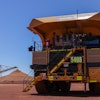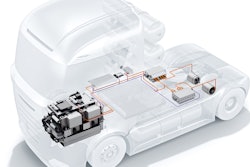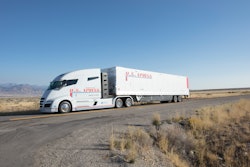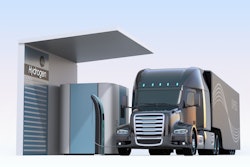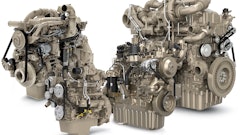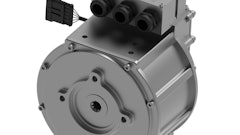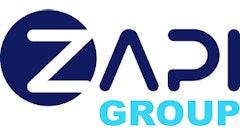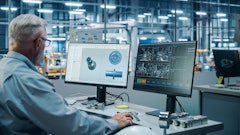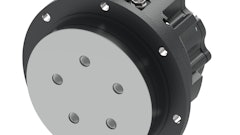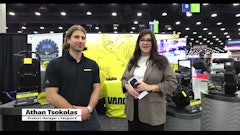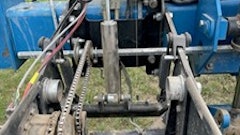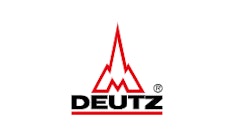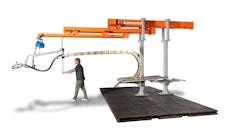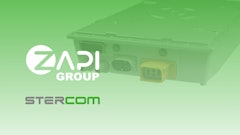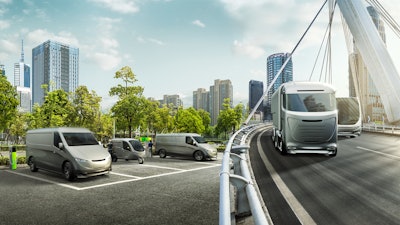
Climate action for road transport calls for a broad technology offensive. Commercial vehicles in particular have a wide variety of requirements when it comes to powertrain solutions, as the CO2 emissions differ greatly depending on driving profile, payload, and driving distance. While light vehicles tend to drive shorter distances, for example on downtown delivery routes, heavy-duty trucks transport goods and merchandise over long distances. To meet EU requirements, CO2 emissions need to be cut dramatically in both light commercial vehicles and heavy trucks by 2030. Bosch hopes to play a role in realizing climate-neutral transportation for all vehicle classes. To this end, the company is developing a range of efficient powertrains – from combustion engines and battery-electric models to fuel cells.
Powertrain solutions for commercial vehicles
Silent through the city – the electric powertrain for light commercial vehicles
It’s hard to imagine city streets without delivery vehicles, tradespeople, and other small-scale businesses – especially given the steadily rising demand for goods and services. That is why society needs pioneering powertrains that put as little strain as possible on residents and the environment. Bosch’s eCityTruck powertrain solutions allow for low-noise driving with zero local emissions. Together, they form a compact module made up of the e-axle, which combines the electric motor, power electronics, and transmission in a compact unit, and an electric drive module (without the transmission). Both solutions are easy to integrate and can be scaled for light commercial vehicles up to 7.5 tons. Depending on the battery design, they enable ranges of up to 200 km, meaning that most delivery routes of less than 80 km a day are easily covered on a single charge. “With our modular eCityTruck powertrain solutions, we are making the electrified powertrain economical, compact, and efficient,” says Uwe Gackstatter, President of the Bosch Powertrain Solutions division. In doing so, Bosch is getting electric vans ready for the mass market.
 Bosch's electric powertrain solutions for light commercial vehicles help to mitigate noise emissions in city centers.
Bosch's electric powertrain solutions for light commercial vehicles help to mitigate noise emissions in city centers.
Battery power for country roads, too – economical electrification for regional delivery trucks from 7.5 to 26 tons
Bosch is driving forward the electrification of commercial vehicles outside the city limits as well. For instance, the company offers eRegioTruck powertrain solutions for medium- and heavy-duty trucks as well as for city and long-distance buses, and special use cases. The powertrain concept plays a critical role in making regional traffic within a radius of some 250 km as economical and efficient as possible – not only that, it does it with low noise and zero local emissions. An electric motor, inverter, and vehicle control unit are all part of this systems solution. Depending on the topology, the compact electric motor can come as a separate electrical unit in combination with a transmission, or as an active component integrated into a rigid axle.
Going the distance efficiently – Bosch powertrain solutions for long routes and heavy loads
Because of the high mileage and the load they transport, the potential for reducing CO2 in vehicles that drive long-haul routes is particularly great. For each customer’s needs, no matter where in the world, Bosch offers the right powertrain solution – whether it’s powered by diesel, natural gas, battery, or fuel cell. In addition, Bosch is currently examining the technical issues regarding the use of hydrogen in combustion engines and is looking into the marketability of this technology. The engine technologies available today and existing vehicle architectures already form a solid basis for developing this approach.
eDistanceTruck powertrain solutions: In the future, how will trucks weighing as much as 40 tons be able to travel more than a thousand kilometers in electric mode? The key lies in Bosch’s eDistanceTruck powertrain solutions. These include the fuel cell as well as hybrid drives. The fuel-cell system in particular scores points with its combination of long range and short refueling times. If the hydrogen used comes from renewable sources, then the fuel cell’s operation is climate-neutral. Bosch offers various solutions for mobile fuel-cell systems that address customer requirements around the world: for the stack as the core of the design, the individual components in the submodules, or the overall system for commercial vehicles.
 The eDistanceTruck powertrain solution.Bosch
The eDistanceTruck powertrain solution.Bosch
Thanks to their compact design, the solutions are easy to integrate into existing vehicle platforms. Bosch is currently working with the startup Powercell to develop the stack and make it market-ready. The plan is to begin the large-scale manufacture of fuel-cell stacks in 2022 and launch the complete fuel-cell system – the Bosch fuel cell power module – in 2023. In addition, Bosch is currently working with other companies as part of the EU-funded H2Haul project to build a small fleet of fuel-cell trucks and put them on the road.
Bosch components for natural gas powertrains: In regions with well-developed infrastructure for natural-gas filling stations, Bosch’s natural-gas drive system offers a viable alternative to conventional fuels for long-haul routes. Compared to liquid fuels, natural gas produces lower CO2 and particulate emissions and offers cost advantages in many countries, depending on the local fuel prices. Bosch has a comprehensive portfolio of proven natural gas technology for many different vehicle types.
Bosch diesel technology: The diesel engine is the dominant powertrain in commercial vehicles and will remain the preferred choice for the foreseeable future. No other combustion engine is used in such a variety of ways. Its advantages include high efficiency and the associated economic benefits, as well as strong engine performance. Bosch’s diesel portfolio features components for fuel injection and fuel supply, engine and air management, and exhaust-gas treatment. The company has also approved these for the use of synthetic fuels.
Working together, Bosch and the Chinese engine manufacturer Weichai Power were the first to increase the efficiency of a commercial-vehicle diesel engine up to 50% – a real milestone, given that the maximum value for trucks to date was 46%. “This demonstrates that Bosch is systematically improving its diesel drive systems for on- and off-highway operation,” Gackstatter says. One feature of the new engine is Bosch’s modular common-rail system for commercial vehicles with up to 2,500 bar injection pressure. The system ensures efficient fuel supply and injection, is scalable, and can be configured for engine sizes with up to eight cylinders. Depending on the segment, it has a service life of up to 1.6 million km, and in off-highway operation, 15,000 hours.
 Bosch diesel technology is helping to improve efficiency of commercial vehicles.Bosch
Bosch diesel technology is helping to improve efficiency of commercial vehicles.Bosch
In addition, the exhaust-gas treatment by urea injection – called selective catalytic reduction, or SCR – in the Bosch SCR system with double injection helps further reduce the emissions of diesel vehicles and make them more economical in their use of resources. Here, urea is injected into a catalytic converter close to the engine and into one located farther away. The system responds flexibly to driving conditions, such as high- and low-load cycles or cold starts, and can thus effectively and efficiently reduce the emission of nitrogen oxides. It is also designed for low fuel consumption.
Completely connected – the internet of things (IoT) in the drive system for shorter development times and faster troubleshooting
Bosch connects the drive system and provides cloud-based services for the entire vehicle life cycle. An example of such an IoT application is web-based validation in large-scale development. This process transfers powertrain data from the connected vehicles. Remote analysis makes it possible to monitor and evaluate different applications simultaneously, allowing defects in the drive system to be detected at an early stage. This reduces development time and further enhances the system’s reliability in production vehicles. Additional IoT applications for production vehicles can eliminate imminent failures of individual components using specially developed algorithms, thus effectively preventing downtimes.

